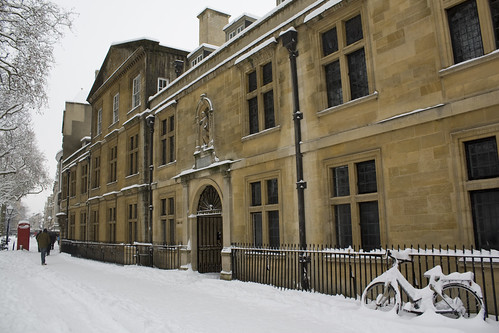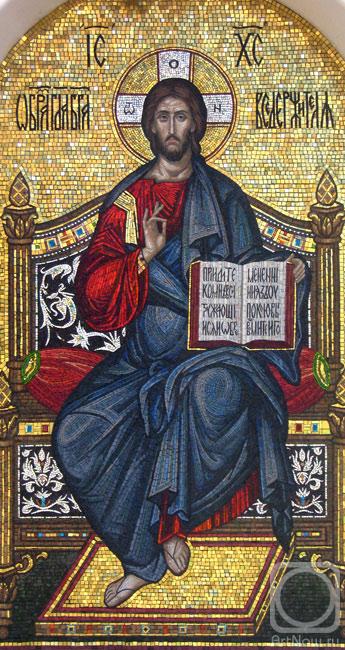This is the homily preached by Fr David Sanders at the funeral of Fr Austin Milner. The readings of the Mass were Isaiah 25 6-10, Roman 8:2-10 and Mathew 11:25-30
Jesus tells us in the gospel passage we have just heard that it is the infants, the little children, who will be given the revelation of God’s mystery, it is the simple who will understand his divine plan; it won’t be the clever and the wise. Not that Jesus seems to have had anything inherently against the learned but the trouble was that they were placing too many obstacles in the way of the coming of God’s kingdom which appeared in his ministry. Often it is their arrogance, their cleverness, which gets in the way of God’s rule while the simple ones, the ones who are willing to become like children, these are the ones who are open to God’s spirit.
Our brother Austin had something of that simplicity, that openness, even a child-like innocence in his approach to God. At his baptism he had received the spirit of the risen Christ which would work on his character over the years, gradually moulding and shaping it into the image of Christ. Not that Austin was not both learned and intelligent, but to these gifts, he gave God’s Spirit free access, to work on them.

He was born and baptised in Bristol in 1935 to a loving Catholic family and grew up happily with his parents and his brothers Anthony and Paul, and sisters Patricia and Mia, to whom he was devoted. They moved to London. It was war time and bombs were falling so they had to move again. He was eventually sent for his secondary education to the Benedictines at
Glenstal Abbey in Ireland which he loved. And it seems from an early date he felt called to the religious life and finally chose the Dominicans and entered the order at the early age of eighteen.
He went through the usual pre-Vatican II studies of the time here in England and then spent three fairly disciplined and sober years studying with the French Dominicans at Le Saulchoir near Paris. There his interest in the liturgy grew and when he came back here to Oxford he began to teach it. But the times they were a changing, and the bold and free spirit of Austin felt called to preach the Gospel to many of the interesting groups the swinging sixties were throwing up. So he would be seen striding across Pusey House lawn among hippies and flower people or talking in tongues with the newly formed Catholic charismatic groups.
But then more change came about. The spirit blew him, so to speak, to the Caribbean and to our mission in Grenada where in fact his father had been born. He got stuck into pastoral work with typical enthusiasm but to such an extent that in these troubled post-colonial days in Grenada he was soon hauled before the tyrannical, slightly crazy, prime minister Eric Gairy to give an account of his subversive preaching. Austin always had a concern for justice and for caring for what the Gospel of today calls the weary and overburdened poor. Anyhow he survived this ordeal. But the Church in the Caribbean needed his learning in Trinidad and he was asked to go
St John Vianney seminary to teach liturgy. He spent the next ten years in Trinidad before he moved to Jamaica to live in our Dominican community in Kingston and teach in
St Michael’s Seminary. But it was certainly not a quiet life in this violent city.

In 1988 the devastating hurricane Gilbert struck Jamaica and he was asked to go to Morant Bay, a coastal town, to look after the parish that had been battered by those terrible storms. A few weeks ago the parish priest of this parish e-mailed me to ask whether Austin could contribute to a booklet he was preparing to celebrate the fortieth anniversary of the parish. Austin was too weak to write so I took notes from what he said. I asked him what did hurricane do and he said it ripped off the roof, of the convent, of the church and of the presbytery. And what did
you do. He said he got into a lorry and went to Kingston to get food and drink for the victims. This was typical of his forthright, direct approach to things, though I must admit I hope he was not
driving the lorry or that would have just added to the mayhem.
This week I received a message from the Archbishop of Kingston, Archbishop Donald Reece whom some of you know. He paid great tribute to the profound and lasting effect Austin had had on so many of the priests and people he taught throughout the Caribbean. But of course with Austin there is always what you might call the eccentric side which people will always remember. The archbishop reminded me that this big, sometimes awkward priest, we know as our brother Austin was also known out there as the Big Bird and the stories about him are legion. But with the laughter there is always a great affection because everyone could see that behind the naivete there was a tremendous spirit of goodness and kindness.

So after an impressive 30 or so years of work on the mission Austin came back to Oxford. He was in his early 70s but he threw himself into the new life with great enthusiasm. Now he could pursue his scholarly interests and he was also asked to teach liturgy. He had not lost his innocence. He had an amazing credulity about the free offers he got in the post. He actually thought he would win these vast sums of money they promised and was always seeking people to go on a free holiday to places like Turkey, not fully aware that a sea-side hotel in January there, in weather like this, might not be so attractive.
He loved being back in a big religious community with its study, and choir, and fraternal spirit. And then of course he was so glad to see the family more often, especially his nephews and nieces and to be able to visit them in Ireland, Paris and Majorca and even his brother Paul in the States.
It was amazing how open he was to invitations to preach; he did lots of mission preaching, he worked with the Spode Music Week, he was chaplain to the Worth lay group for the Easter retreat in Wales, he frequently helped with the youth groups at Kintbury. And in the community he took his turn and cooked for more than 20 and I think he did more lifting of books for the library than anyone else. And then earlier this year we celebrated in this same church, where he had been ordained, his fifty years of priesthood. The family came and stayed and I think the highlight for him was the singing of his brother Anthony’s Mass by the Spode choir. In August he celebrated his 75th birthday.
At the beginning of September he was diagnosed with leukaemia. He took it in his stride. He had the same openness and candour about death as he had about life and began to prepare for it. In fact he channeled his declining energies into a weekly course on the sacraments. He said he preferred to do something constructive while he was waiting. After the sixth lecture he could not go on and, as many have remarked, he then put his teaching into practice as he approached his final days. He was conscious of how people were concerned for him. During these weeks he expressed his gratitude for all the care that brothers John and Graham and their assistants and his own family had given to him as his sickness got worse.

And then last Sunday the community was summoned to his room for the
viaticum. It was the last liturgy he organised and appropriately it was on the First Sunday of Advent. The word of God was read. He received the body and the blood of Christ. He renewed his baptism promises in a strong voice. The Salve Regina was sung and he said goodbye and began his final journey. In a few hours he had died.
And now we come to pray for him at this Eucharist and then to bring his body for burial. We give thanks to God for the life of our brother Austin. We ask God to console and comfort all those who mourn his loss and grieve for him. And we ask God to raise him up to heaven so that he may take part in the divine liturgy and sing in unison with the heavenly choirs and finally enjoy the vision of the God he loved and served so well.
- David Sanders OP
You can read here Fr Austin's words on the occasion of the golden jubilee of ordination to the priesthood. The photographs on this page are from that celebration.
 Ladies, don't forget the rummage sale. It's a chance to get rid of those things not worth keeping around the house. Don't forget your husbands.
Ladies, don't forget the rummage sale. It's a chance to get rid of those things not worth keeping around the house. Don't forget your husbands.
































